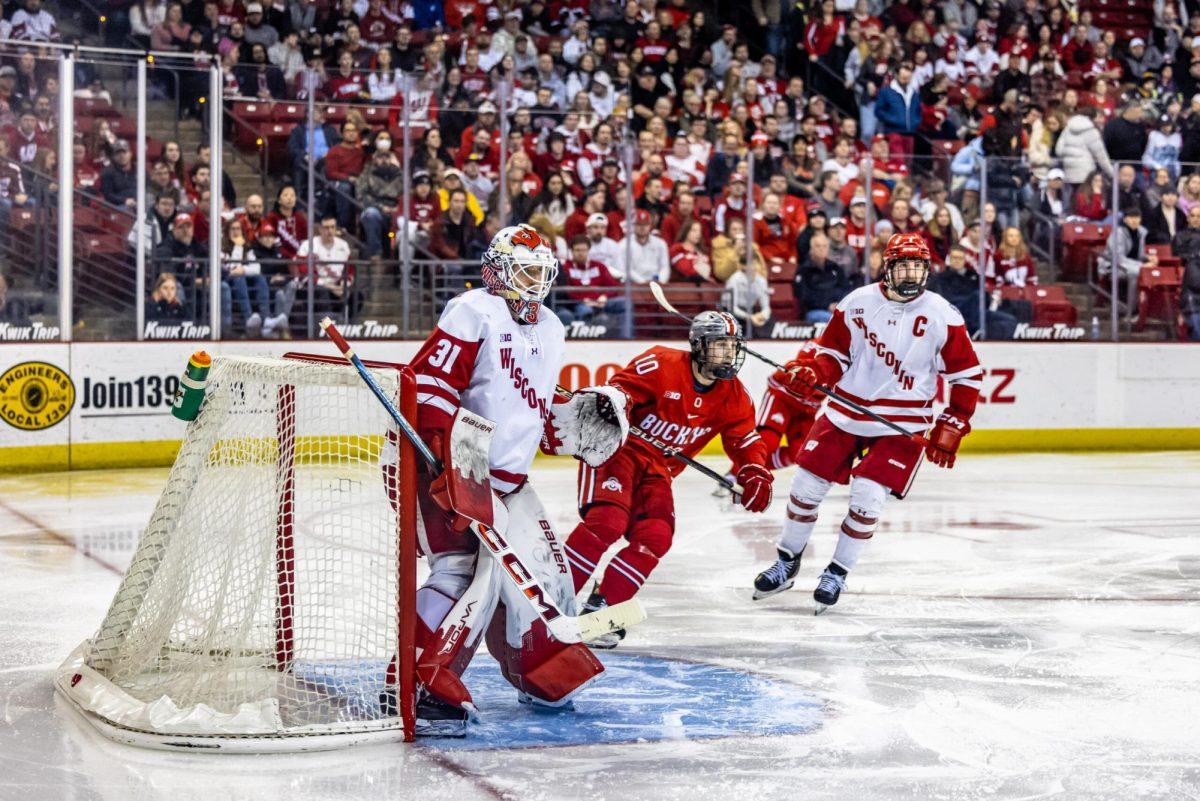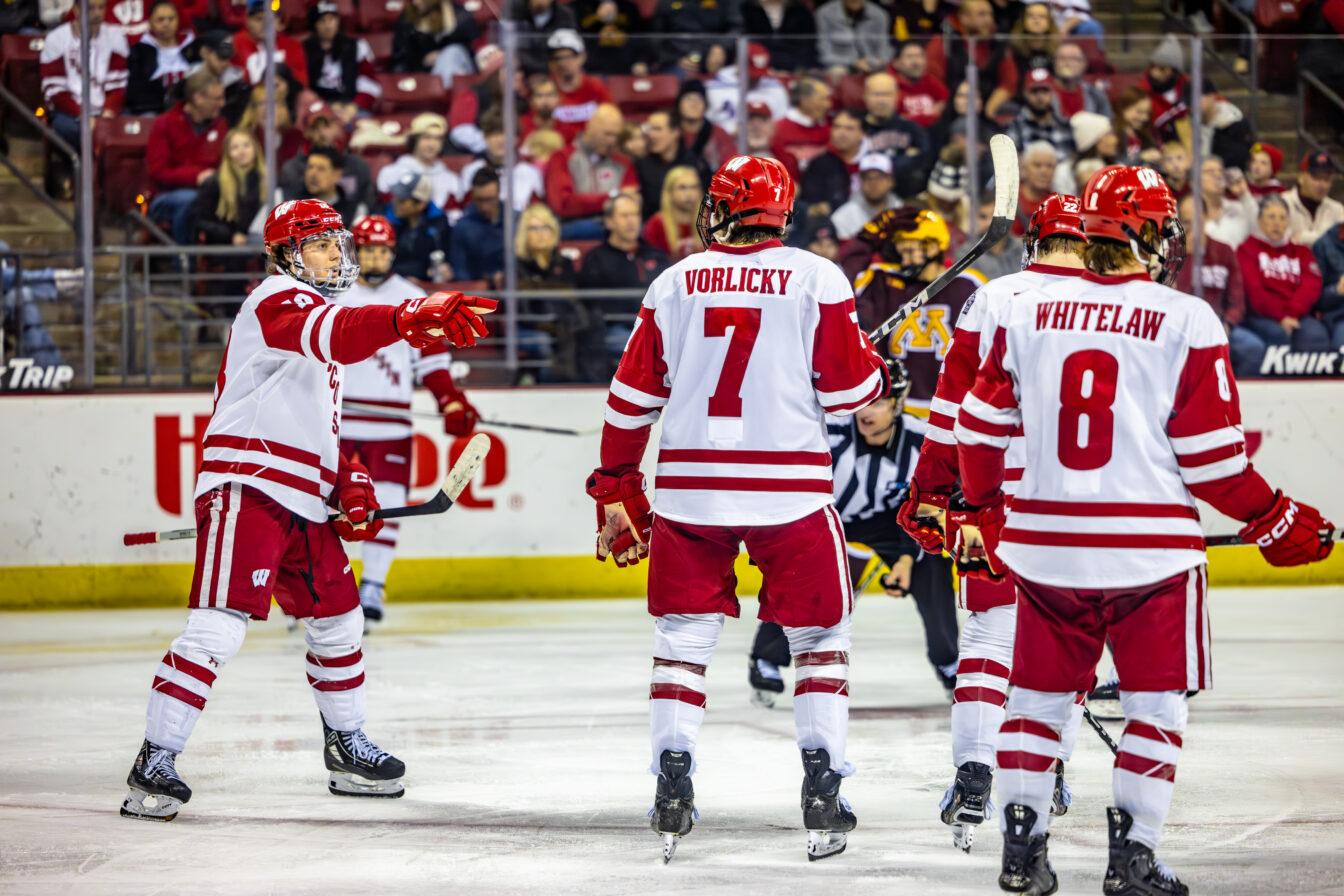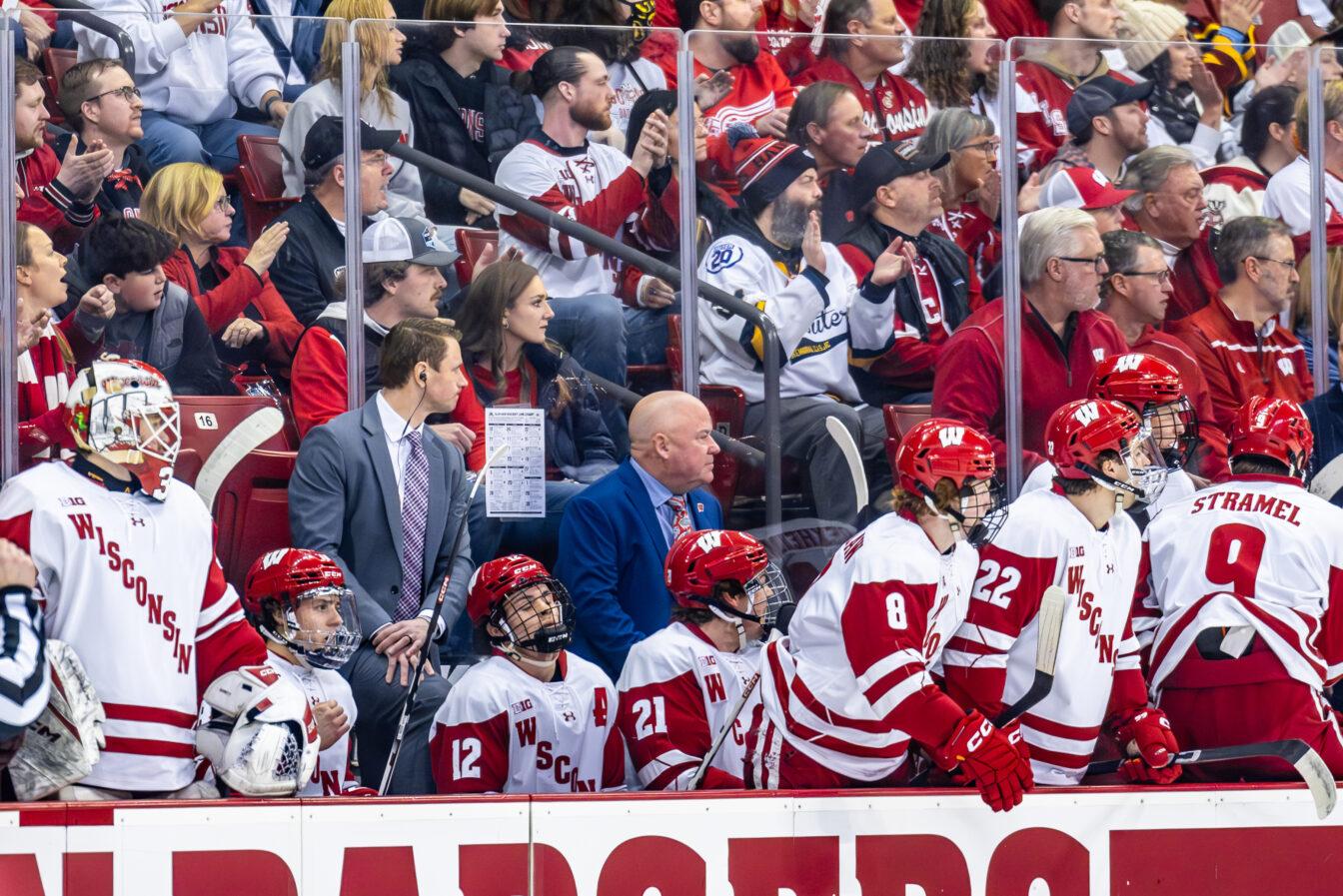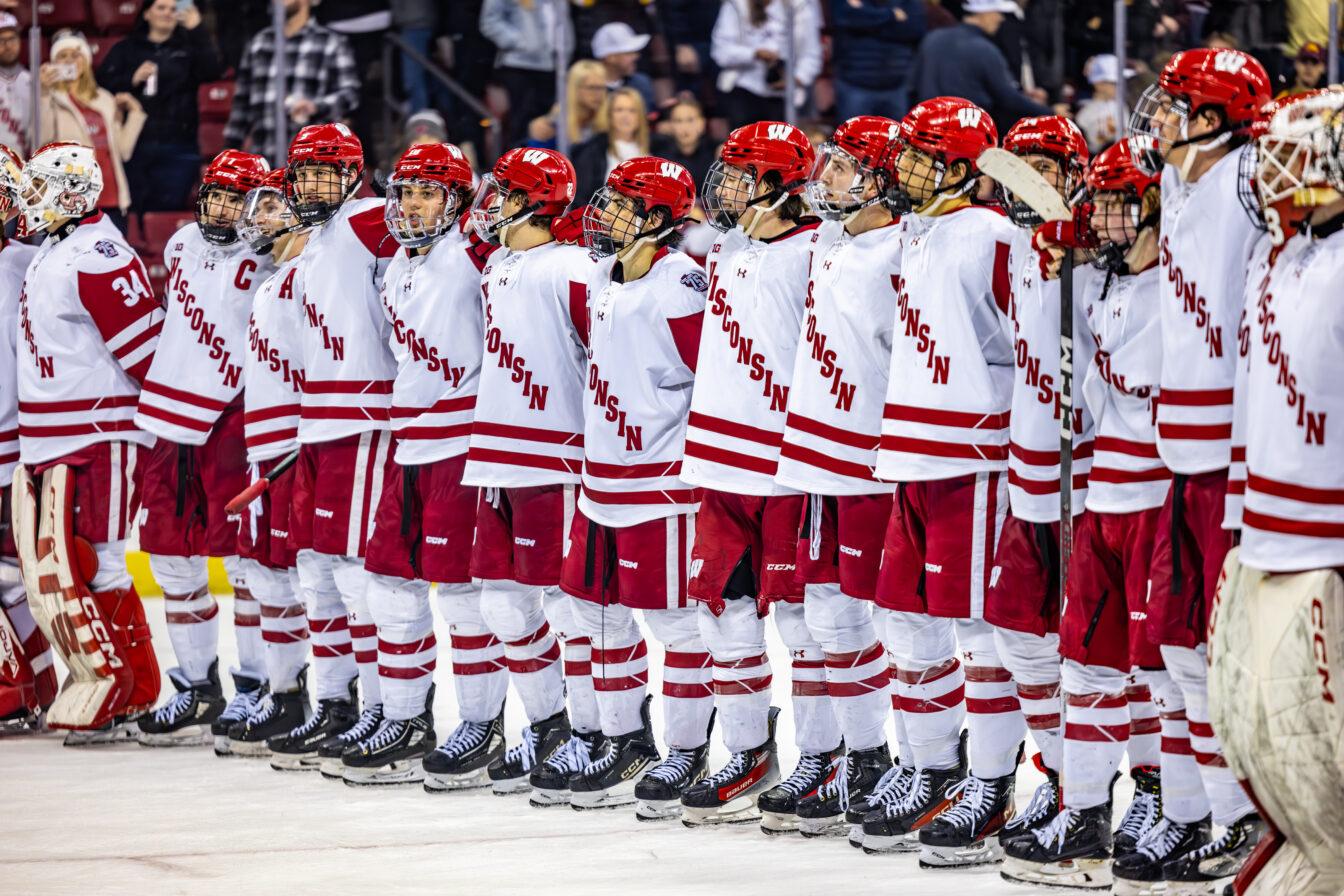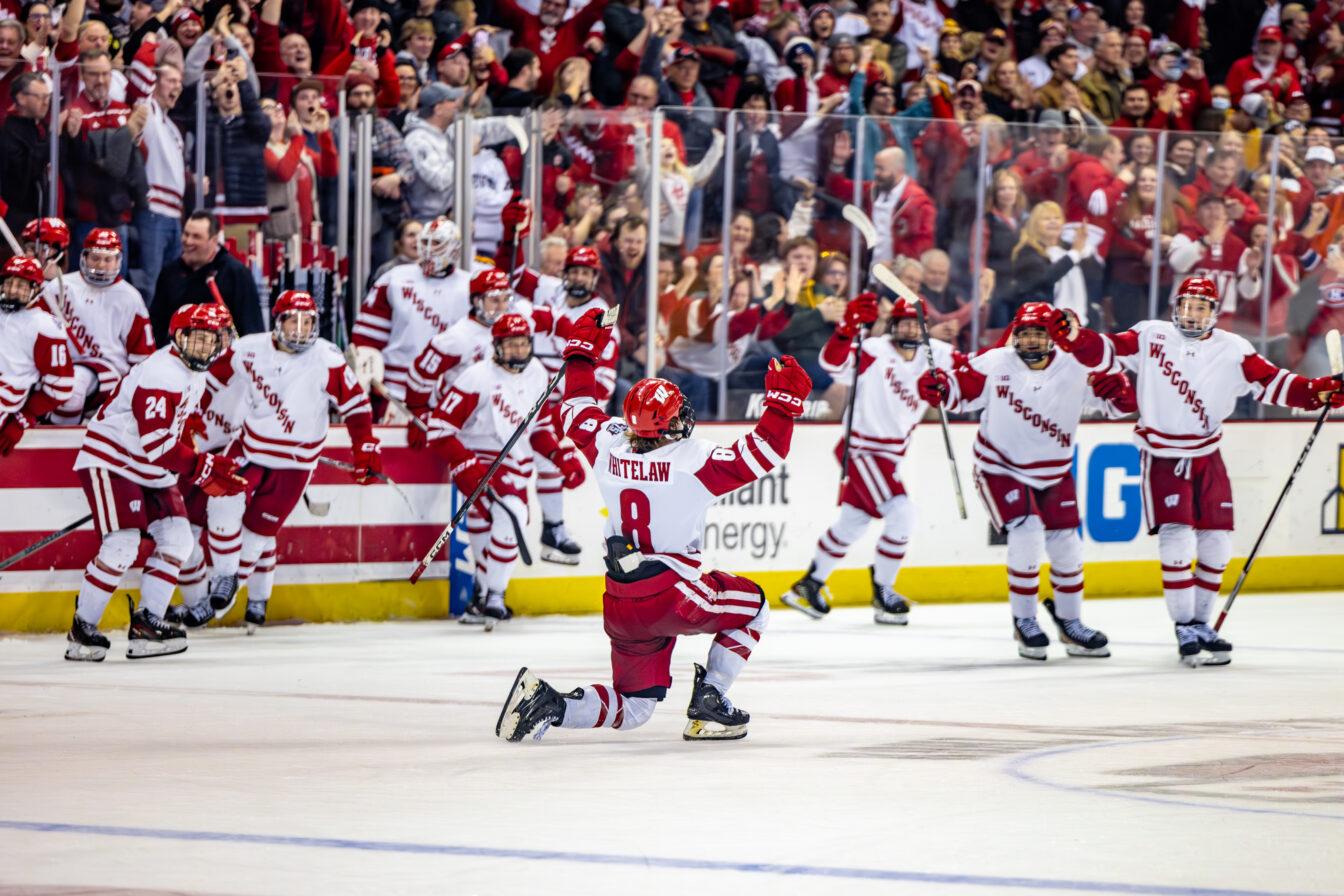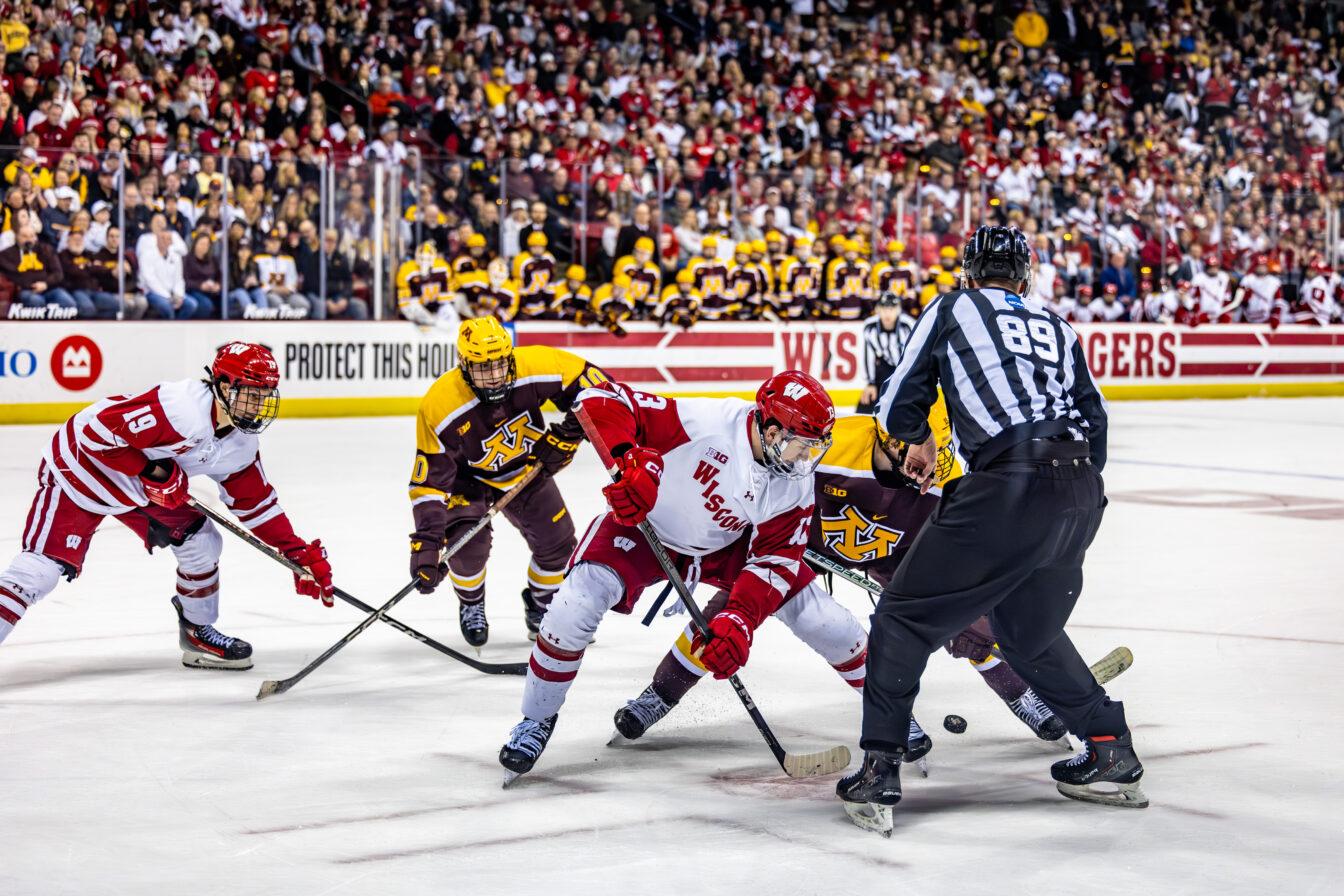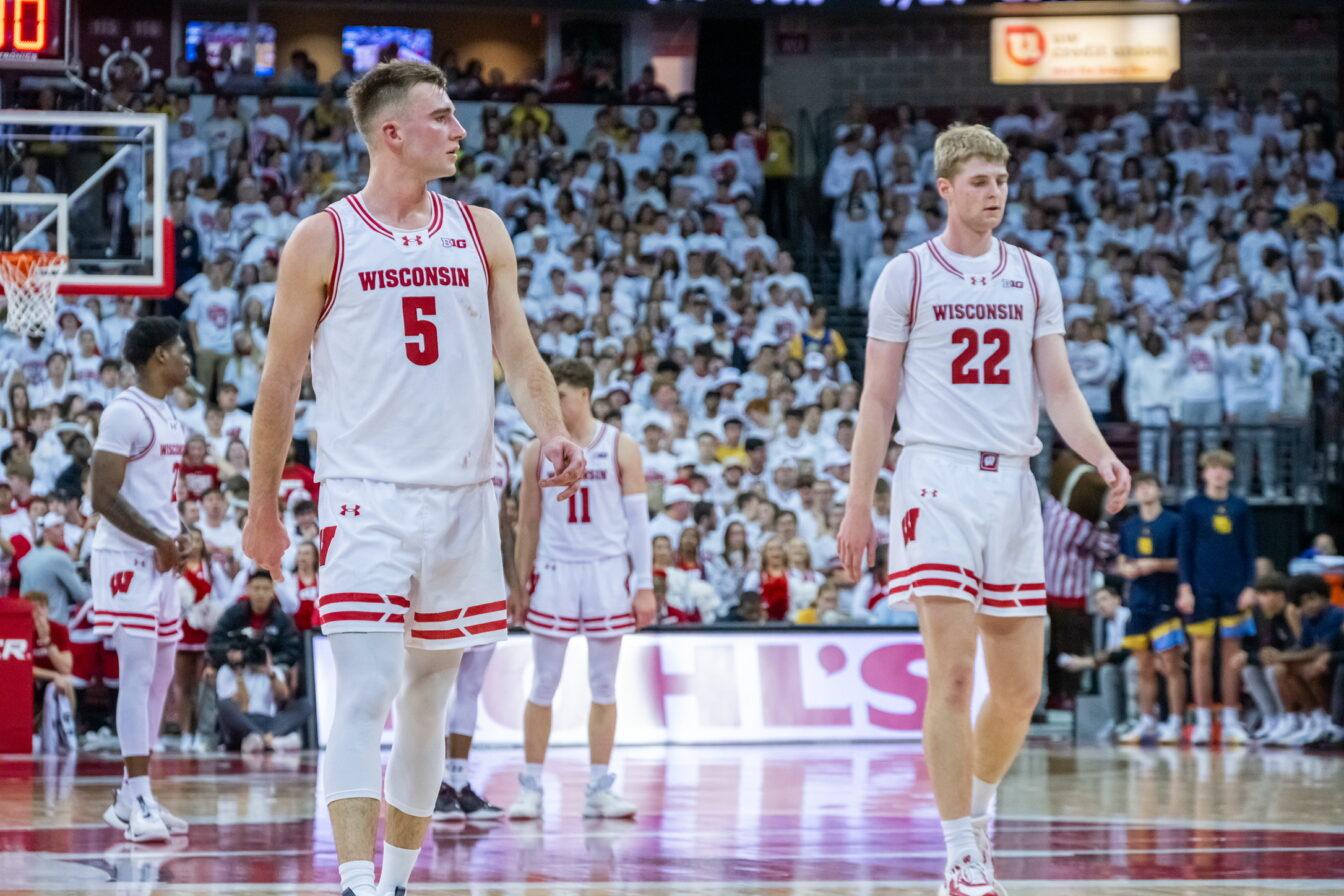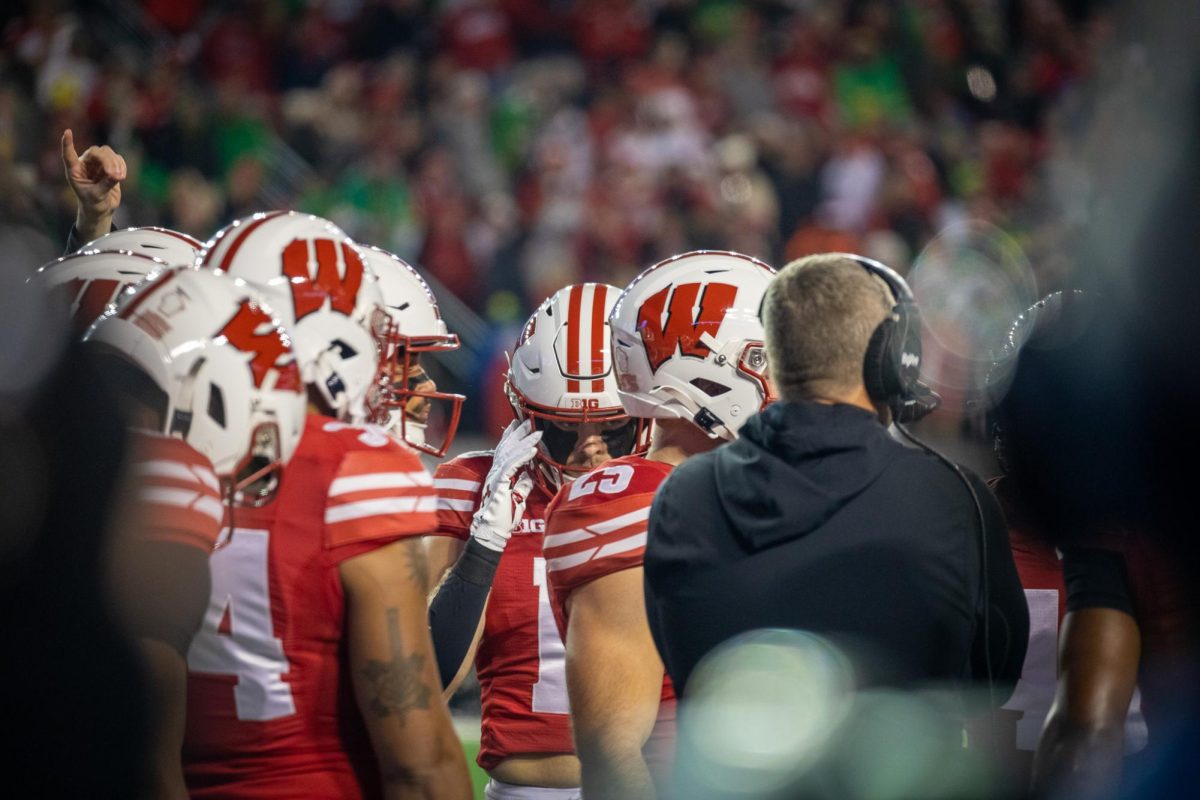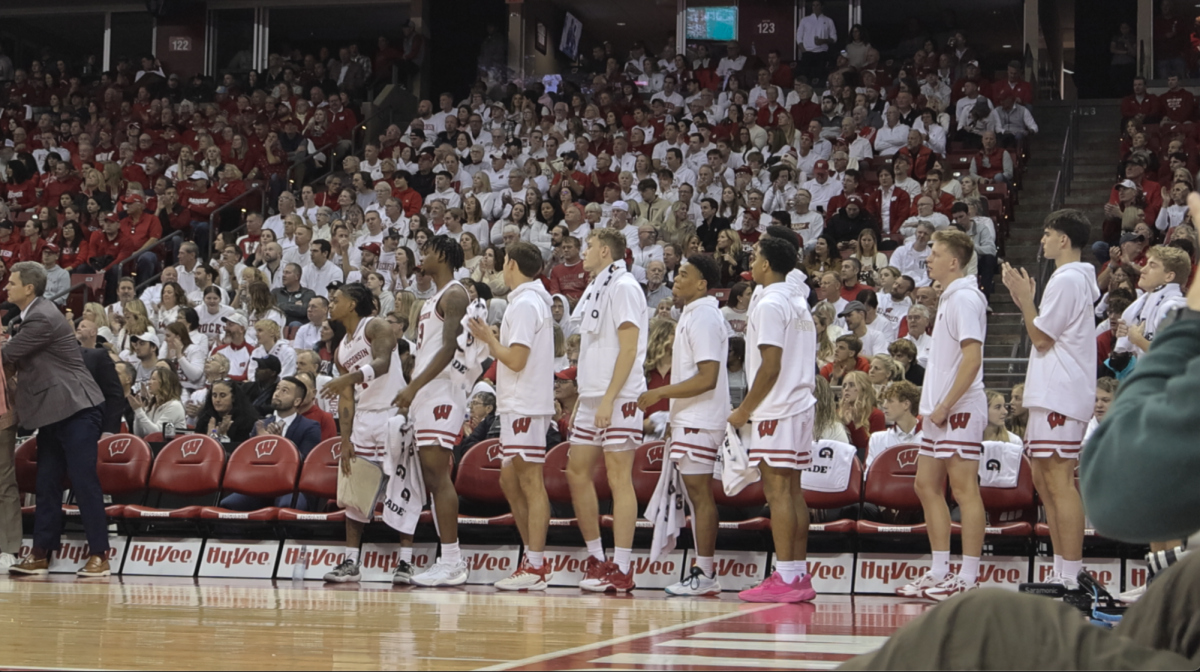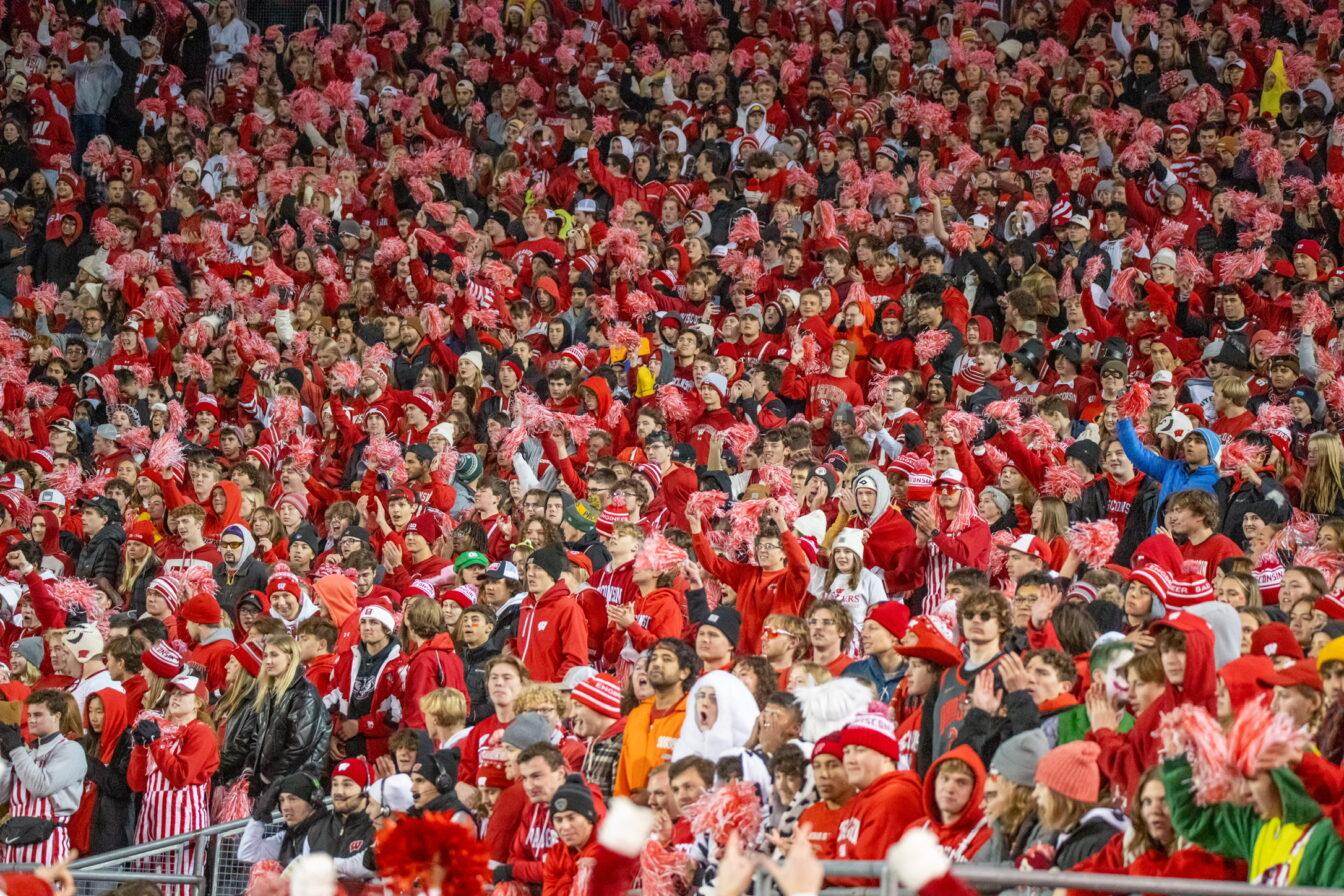
The scene was no different from any practice during the Badgers’ 12-of-13 run two months ago. But the circumstances certainly are.
Heading into a bye week the first weekend of February, UW was five points back of first place. Guys were beat up, sick and needed a chance to rest. It was a welcome break.
Maybe that bye week wasn’t such a great thing after all.
Since then, Wisconsin has been swept at Nebraska-Omaha, earned just one point at home against Minnesota and to cap off the 0-5-1 streak, lost 7-3 at St. Cloud State, prompting a team meeting that lasted almost an hour after the game ended.
“Everything that was said on Saturday was everything that needed to be said that hasn’t been said in a couple weeks,” assistant captain Craig Smith said.
So there’s certainly an awareness of the situation, even if it isn’t evident in the seemingly lighthearted practices. Is there a point where a team can feel too loose, given the circumstances?
“To a point,” senior defenseman Craig Johnson said. “The looseness is coming with, we’ve got to stress the word ‘swagger.’ We need to get a little swagger, we need to get that back.”
The team, to a man, readily admits that following the sweep by the Huskies, the Badgers have reached their lowest low of the season. And just like every point prior to this, they have stressed growth and learning from adversity.
But at a certain point, doesn’t optimism have to change into urgency? Maybe the Badgers waited too long to stop and take a look around.
“I think maybe the talk should have happened a little sooner, but we were saying the right things every week,” Johnson said. “And we seemed focused at practice all week. But you could also tell when you came to the rink, there was a kind of ‘What are we going to have today?'”
“This week, you know what we’re having, you can sense it this week, which is a good thing.”
The truth of the matter though, is that the Badgers are running out of time. This weekend’s series against Colorado College is the end of the regular season. Riding on the games is a chance to claim home ice for the WCHA playoffs, something that seemed a certainty a month ago.
Right now, UW sits in seventh place, one spot out of home ice. Four teams are in contention for fifth and sixth place, including Wisconsin, Colorado College, Minnesota and St. Cloud State.
There are a number of scenarios that could end with UW playing one more series at the Kohl Center, but the simplest is in its own hands: beat CC. The Tigers are one point ahead in the standings and taking three out of a possible four points this weekend would ensure the Badgers remain the home team when the playoffs start.
As Johnson puts it, UW needs to do a lot of “scratching and clawing” this weekend.
“We’ve set in stone that we don’t want to travel, we want to be here, we want to have another home weekend – especially for our seniors,” he said. “We really don’t want to leave, let this be our last weekend here.”
Intentions and promises are one thing, but performance is another. The large gap between them is the reason Wisconsin – a team Smith said “felt sorry” for itself at times – is looking up at more squads than down.
The biggest question for UW is where to begin. It is one matter to have something to point the finger at – special teams, goaltending, effort – but it is another entirely to have everything fall apart.
“[We need to] Just take accountability for what we’re doing,” Smith said. “Taking account for what we’re doing with ourselves and our social life and what we bring to hockey.”
In February, the Badgers had one of the top power plays in the game, top scoring defense in the nation and in Scott Gudmandson, statistically, the best goaltender in the game.
Since then, Wisconsin has allowed at least four goals in five of six games played, inflating their goals allowed per game from 2.00 to 2.42. Gudmandson dropped from first in save percentage to 19th and first in goals-against average to 13th.
The Badgers’ special teams units have floundered as well. UW converted on 24.3 percent of its power plays entering February and have gone 5-32 since (15.6 percent). Meanwhile, opponents went 9-33 (27.3 percent) on the man advantage against the Badgers during that stretch.
The short version: Wisconsin needs big fixes in all phases of its game.
Recent history seems to indicate Wisconsin could have trouble accomplishing the goal of reaching the NCAA tournament. But despite seemingly intimidating odds against, the Badgers trust they can reverse their fortunes quickly.
“History tells us what this team can do,” head coach Mike Eaves said. “Based on that alone and being with them all year, gives you every thought, that when this team has been in some adverse situations, they’ve responded well.”
The talk is there, but the performances are yet to be put on display. A number of words were used to describe the team’s attitude, including excitement, urgency and as Johnson put it, redemption.
Whatever the attitudes or outlooks though, the Badgers are still aware of the reality, which is much less optimistic.
“We’ve got to throw urgency into our game. Especially coming down to the end of the season, playoff hockey is played with a ton of urgency,” Smith said. “Season’s on the line right now; if you think about it, it’s kind of simple: We’ve got to win. We can’t lose any more games.”


